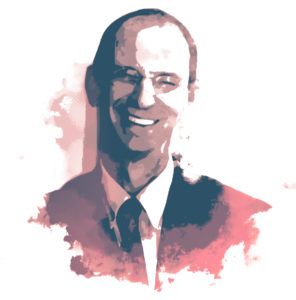The following is condensed from a conversation between writer Sarah Haywood and Thomas R. Schreiner, James Buchanan Harrison Professor of New Testament Interpretation at Southern Seminary.

SH: How do we best use and cultivate our spiritual gifts?
TS: Fundamentally, spiritual gifts are about love. What does it mean to be a Christian? It means to love our triune God and our brothers and sisters in the church. When we exercise our spiritual gift rightly, we are expressing love, sacrificing, and giving of ourselves to others. So it’s not so much about what our gift is and feeling fulfilled in our gifts; it’s a way of giving ourselves to one another and showing concrete love to the body of Christ. I think that’s why Paul puts 1 Corinthians 13 in the middle of the whole discussion — spiritual gifts are about ministering to others, caring about others, and investing in others.
We don’t need to feel bad when we look at someone else’s gifts that we don’t have. Instead, we can rejoice about how helpful it is in our church to have someone who has gifts we don’t. We don’t need to feel inferior or superior to others. God has given us these gifts so we’ll love one another, build up the body of Christ, and strengthen the church. That way, we will be more mature and we will be a more loving and powerful witness to the world.
SH: You say Christians are to concentrate on their own gifts. How does a person discern what their spiritual gift is?
TS: The first and most important thing is to be vitally involved as a member in your local church. Get involved in the lives of others, and your gift, almost inevitably, will manifest itself. We do not see ourselves well; we need other people to help confirm to us what our gifts are. The church is the ideal place for that.
SH: What would you say to someone who feels they don’t have one?
TS: I would say that Scripture is very clear — and there are many texts that preach this — that every person has a spiritual gift. There is no doubt that everyone has a gift. If you don’t know your gift, I do think that you will discover it as you get involved in the lives of others. But if someone were to say to me, “But I have done that! And I still don’t know my gift,” then I would say that, at one level, it doesn’t matter. Gifts aren’t fundamentally for yourself; they’re for others. You are probably exercising your gift — you are doubtless helping others if you are involved in their lives. The most important thing is that you’re edifying and encouraging and strengthening other people. I think eventually God’s going to make it clear what your primary gifts are, but don’t sweat it. If you don’t know it by now, stay involved in the lives of other believers, love them, invest in their lives, and be part of their community.
SH: What are your views on the “sign gifts” like speaking in tongues and prophecy?
TS: As a new Christian, I was taught cessationism, but later became a continuationist. Two major influences on me in the late 80s were Wayne Grudem and John Piper — both continuationists. I was in John’s church then. But slowly, even though I had high regard for them, in the mid-90s, I began to doubt whether continuationism was true. By the late-90s, after I came here in 1997, I was again a nuanced cessationist. And I say nuanced because I do believe that in cutting-edge missionary situations, since God is sovereign, he may be pleased to do signs, wonders, and miracles like he did in the apostolic age.
SH: If the gift of tongues has ceased, what do we make of believers who speak in tongues?
TS: I want to emphasize first that we’re brothers and sisters in the Lord. I want to say to them, “You could be right and I could be wrong.” I don’t think the use of tongues is demonic in most instances — I think for brothers and sisters it’s a sincere attempt to do God’s will. And I agree with J.I. Packer: It’s somewhat akin to singing in the shower or scat singing in jazz — a form of psychological relaxation. Sometimes charismatics take that as insulting, but Packer didn’t mean it as insulting and I don’t either. It’s not necessarily evil; I just don’t think it’s the spiritual gift of tongues. In any case, it ought not to be estimated as a sign of spiritual maturity.
SH: What prompted you to write this book?
TS: I think that most Reformed millenials are continuationists by default. I wanted to write a book that defended cessationism but was still very friendly to continuationists. I didn’t want a book that attacked the other side. I dedicated the book to John Piper, Sam Storms, and Wayne Grudem — all good friends of mine and all continuationists. I dedicate it to them, not sarcastically, but to show my love for them even though we disagree.





